Related Research Articles
This is a partial timeline of Zionism in the modern era, since the start of the 16th century.

Ze'ev Jabotinsky was a Revisionist Zionist leader, author, poet, orator, soldier, and founder of the Jewish Self-Defense Organization in Odessa.

Yishuv, HaYishuv HaIvri, or HaYishuv HaYehudi Be'Eretz Yisra'el denotes the body of Jewish residents in Palestine prior to the establishment of the State of Israel in 1948. The term came into use in the 1880s, when there were about 25,000 Jews living in that region, and continued to be used until 1948, by which time there were some 630,000 Jews there. The term is still in use to denote the pre-1948 Jewish residents in Palestine, corresponding to the southern part of Ottoman Syria until 1918, OETA South in 1917–1920, and Mandatory Palestine in 1920–1948.

Revisionist Zionism is a form of Zionism characterized by territorial maximalism. Revisionist Zionism promoted expansionism and the establishment of a Jewish majority on both sides of the Jordan River.
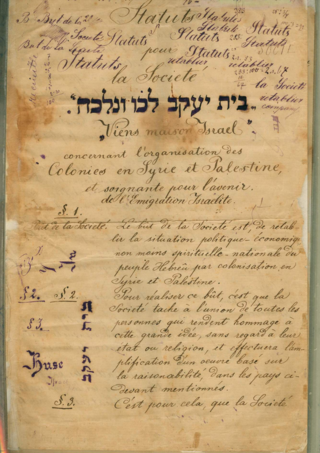
Bilu was a Jewish movement of the late 19th century, fueled predominantly by the immigration of Russian Jews, whose goal was the agricultural settlement of the Land of Israel. Its members were known as Bilu'im, and the movement sought to inspire Jews to migrate to Ottoman Palestine. The Bilu'im rejected progressive notions such as Emancipation and assimilation as viable options for Jewish survival. The movement collapsed as a result of the challenging farming conditions in Palestine and a lack of funding to sustain the settlers.
The Lovers of Zion, also Hovevei Zion or Hibbat Zion, were a variety of proto-Zionist organizations founded in 1881 in response to the Anti-Jewish pogroms in the Russian Empire and were officially constituted as a group at a conference led by Leon Pinsker in 1884.

Haim Arlosoroff was a Socialist Zionist leader of the Yishuv during the British Mandate for Palestine, prior to the establishment of Israel, and head of the political department of the Jewish Agency. In 1933, Arlosoroff was assassinated while walking on the beach in Tel Aviv.

Hillel Kook, also known as Peter Bergson, was a Revisionist Zionist activist and politician.
The First Aliyah, also known as the agriculture Aliyah, was a major wave of Jewish immigration (aliyah) to Ottoman Palestine between 1881 and 1903. Jews who migrated in this wave came mostly from Eastern Europe and from Yemen, stimulated by pogroms and violence against the Jewish communities in those areas. An estimated 25,000 Jews immigrated. Many of the European Jewish immigrants during the late 19th-early 20th century period gave up after a few months and went back to their country of origin, often suffering from hunger and disease.

Samuel Mohilever, also Shmuel Mohilever, was a rabbi, pioneer of Religious Zionism and one of the founders of the Hovevei Zion movement.

Abba Ahimeir was a Russian-born Jewish journalist, historian, and political activist. One of the ideologues of Revisionist Zionism, he was the founder of the Revisionist Maximalist faction of the Zionist Revisionist Movement (ZRM) and of the clandestine Brit HaBirionim.
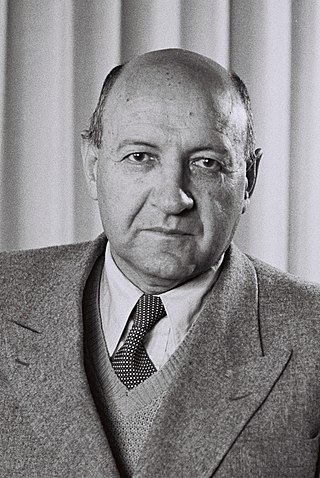
Eliezer Kaplan was a Zionist activist, Israeli politician, one of the signatories of the Israeli declaration of independence and the country's first Minister of Finance and Deputy Prime Minister.
As an organized nationalist movement, Zionism is generally considered to have been founded by Theodor Herzl in 1897. However, the history of Zionism began earlier and is intertwined with Jewish history and Judaism. The organizations of Hovevei Zion, held as the forerunners of modern Zionist ideals, were responsible for the creation of 20 Jewish towns in Palestine between 1870 and 1897.

The common definition of Zionism was principally the endorsement of the Jewish people to return to their homeland, secondarily the claim that due to a lack of self-determination, this territory must be re-established as a Jewish state. Zionism was produced by various philosophers representing different approaches concerning the objective and path that Zionism should follow.

Events in the year 1935 in the British Mandate of Palestine.
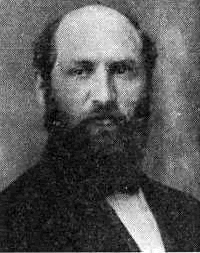
Nathan Mileikowsky was a Zionist political activist, rabbi, and writer. Mileikowsky's son was the scholar and academic Benzion Netanyahu, and his grandson is current Israeli Prime Minister Benjamin Netanyahu.
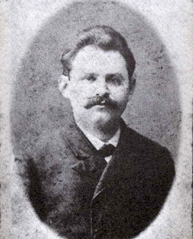
Isaac Leib Goldberg was a Zionist leader and philanthropist in both Ottoman Palestine and the Russian Empire, and one of the principal founders of Rishon LeZion, the first Zionist settlement founded in the Land of Israel by the New Yishuv. An early member of the Hovevei Zion movement (1882), he also founded the Ohavei Zion society. Goldberg was a delegate to the First Zionist Congress and the founder of two Hebrew newspapers, Ha'aretz and Ha'am.
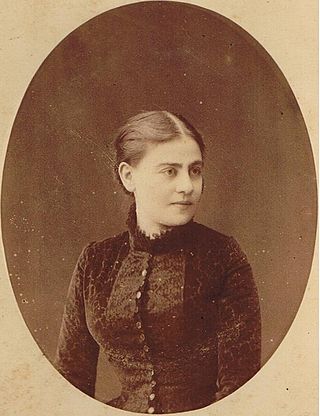
Olga Hankin was a feminist, professional midwife and Zionist activist who, together with her husband, Yehoshua Hankin, was responsible for most of the major land purchases of the Zionist Organization in Ottoman Palestine and Mandatory Palestine. While he became known as a prominent "redeemer of lands" (Hebrew) גואל האדמות she, too, was instrumental in this work.

Alter Druyanov was a Russian Jewish writer, editor, translator, folklorist, journalist, historian of early Zionism, and Zionist activist. His pen name derived from his birthplace, Druya, was variously transliterated as Druyanow, Drujanow, etc.) He wrote both in Yiddish and Hebrew languages.

Yehoshua Heschel Yeivin was an Israeli doctor, writer, translator, journalist, and leader within the Revisionist Zionist movement.
References
- ↑ "Shulamit Goldstein | Jewish Women's Archive". jwa.org. Retrieved 2019-02-08.
- ↑ "Romana Goodman | Jewish Women's Archive". jwa.org. Retrieved 2019-02-08.
- ↑ "Emma Levine-Talmi | Jewish Women's Archive". jwa.org. Retrieved 2019-02-08.